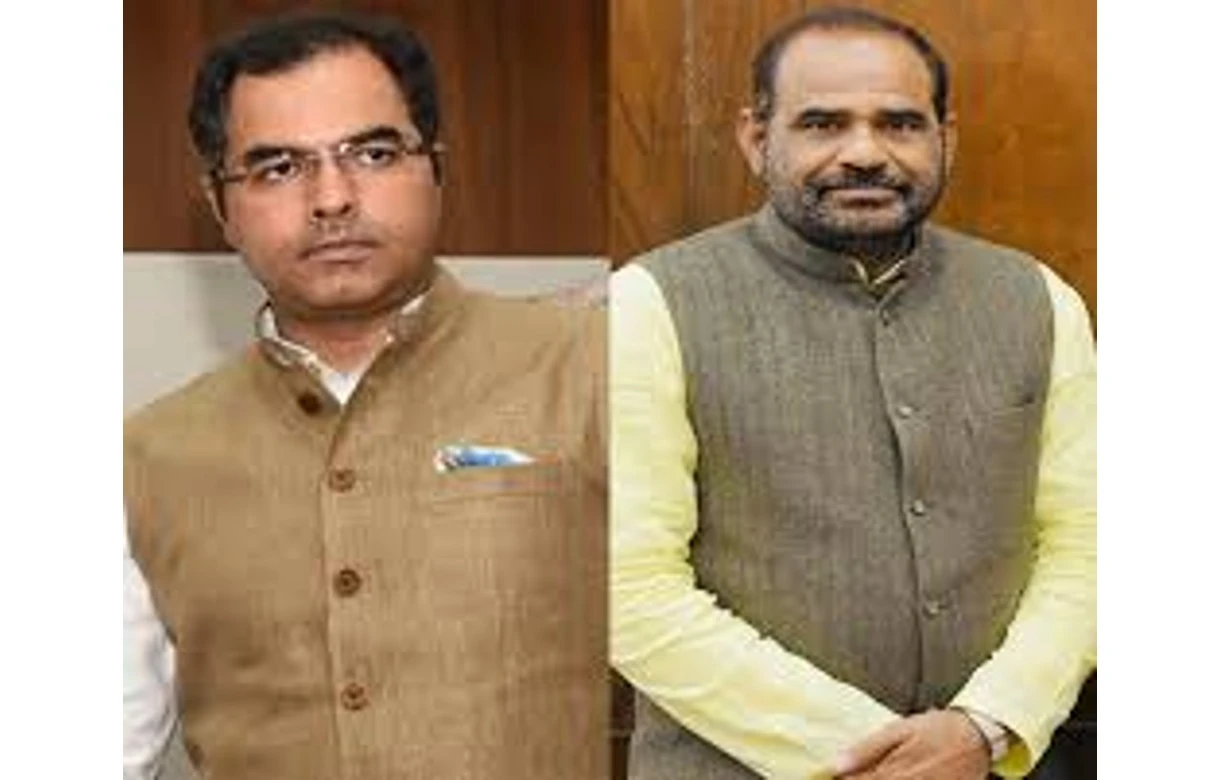The BJP is leading in the vote counting for the Delhi Assembly elections, according to early trends. The saffron party has crossed the crucial majority mark of 36 seats in the 70-member Assembly, signalling a potential victory and a return to power in the national capital after nearly a decade.
As the BJP inches closer to forming the government in Delhi, speculation is mounting over who will take the reins as the next Chief Minister. Several prominent names within the party have emerged as potential candidates for the top post, each bringing their own political clout and experience to the table.
Among the frontrunners is Parvesh Verma, the son of former Delhi Chief Minister Sahib Singh Verma. A former Member of Parliament, Verma is currently contesting against Aam Aadmi Party (AAP) chief Arvind Kejriwal in the New Delhi constituency. A victory in this high-stakes battle could significantly bolster Verma’s chances of being chosen as the BJP’s face for the Chief Minister’s role.
Former MP Ramesh Bidhuri, who is up against AAP’s Atishi Singh, wields considerable influence within BJP’s political landscape in Delhi.
Another name gaining traction is Bansuri Swaraj, the daughter of the late Sushma Swaraj, a revered BJP leader and former Union Minister. Despite being a first-time Member of Parliament, Bansuri has been steadily making her mark within the party. Her lineage and growing influence make her a strong contender for the position.
Smriti Irani, the Union Minister and BJP leader is also reportedly in the running. Although Irani faced a setback in the recent Lok Sabha elections, losing to Congress candidate Kishori Lal Sharma in Amethi, her extensive political experience and national prominence keep her in the mix for the Delhi Chief Minister’s role.
Dushyant Gautam, BJP’s national general secretary, is another key figure in the race. Contesting from Karol Bagh’s reserved constituency against AAP’s Vishesh Ravi, Gautam brings a wealth of political experience to the table. His tenure as a Rajya Sabha member and his leadership within the Dalit community further strengthened his candidacy.
The BJP’s central leadership is expected to make the final decision, taking into account the candidates’ electoral performance, political acumen, and ability to lead Delhi’s administration effectively. With the party poised to reclaim power in the national capital after nearly a decade, the choice of Chief Minister will play a pivotal role in shaping Delhi’s future governance.
While the BJP has remained tight-lipped about its choice, Delhi BJP President Virendra Sachdeva hinted that the decision rests with the party’s central leadership.
Speaking to reporters after offering prayers at the Hanuman Temple in Connaught Place, Sachdeva expressed confidence in the party’s performance, stating, “The results so far are in line with our expectations, but we will wait for the final outcome.” He credited the BJP’s likely victory to the hard work of its candidates and the electorate’s preference for development and corruption-free governance.
“The people of Delhi have chosen Prime Minister Narendra Modi’s leadership because they wanted a model of development. This win is a testament to PM Modi’s vision, and we will ensure a strong and stable government for Delhi,” Sachdeva asserted. He also emphasized that the BJP would establish a “double-engine government,” aligning the state’s administration with the central leadership’s policies.
Taking a swipe at the Aam Aadmi Party (AAP) and its chief, Arvind Kejriwal, Sachdeva accused the incumbent party of failing to address critical issues plaguing the city. “We fought these elections on real issues—broken roads, dirty water, liquor policy controversies, and corruption. Whenever we questioned Kejriwal on these matters, he either remained silent or avoided accountability,” he said.
Sachdeva further criticised Kejriwal for relying on “false promises” to sway voters, claiming that the people of Delhi had seen through these tactics. “Delhi’s pain is real, and the people have voted to end it by choosing PM Modi’s leadership,” he added.
The BJP’s resurgence in Delhi marks a significant shift in the political landscape of the capital, which has been under AAP’s governance since 2015. If the current trends hold, the BJP is poised to reclaim power, setting the stage for a new chapter in Delhi’s governance.
As the final results await, all eyes are now on the BJP’s central leadership to announce its choice for the Chief Minister’s post, a decision that will shape the future of Delhi’s administration.


 India News13 hours ago
India News13 hours ago
 Cricket news12 hours ago
Cricket news12 hours ago
 India News13 hours ago
India News13 hours ago
 Latest world news13 hours ago
Latest world news13 hours ago
 Latest world news9 hours ago
Latest world news9 hours ago
 LATEST SPORTS NEWS6 hours ago
LATEST SPORTS NEWS6 hours ago













